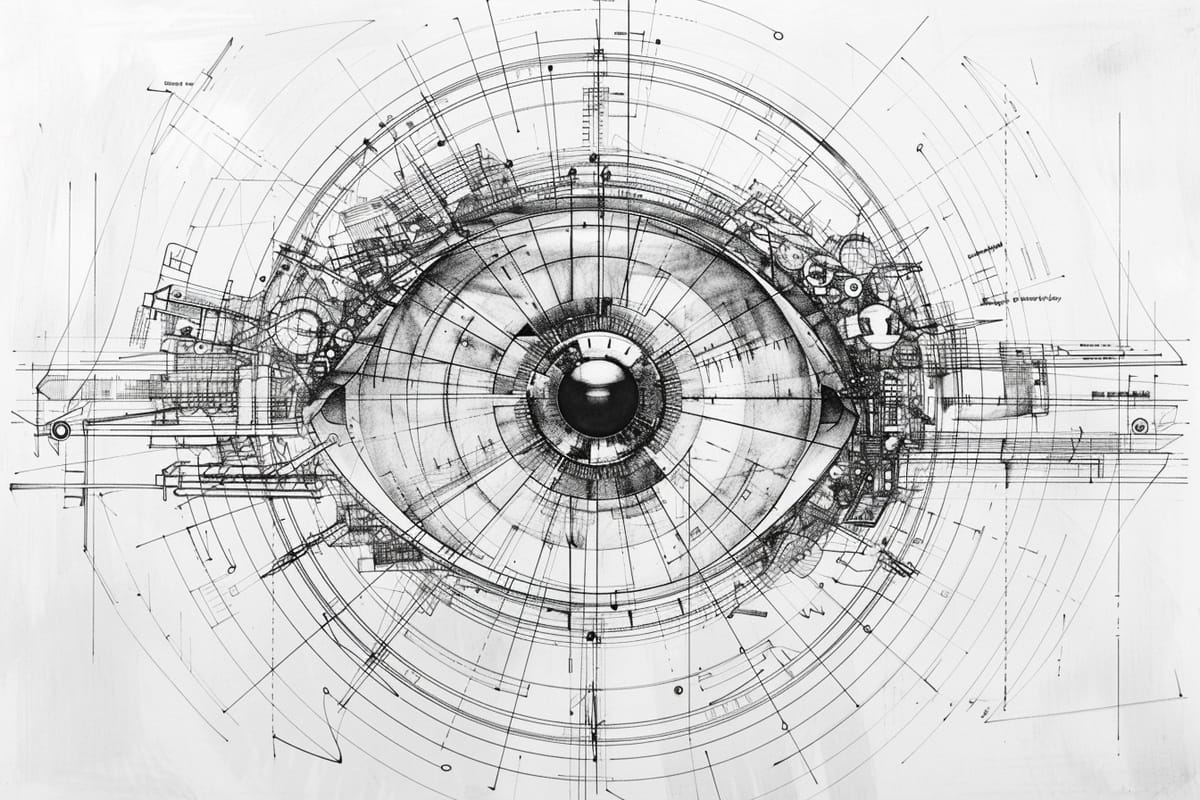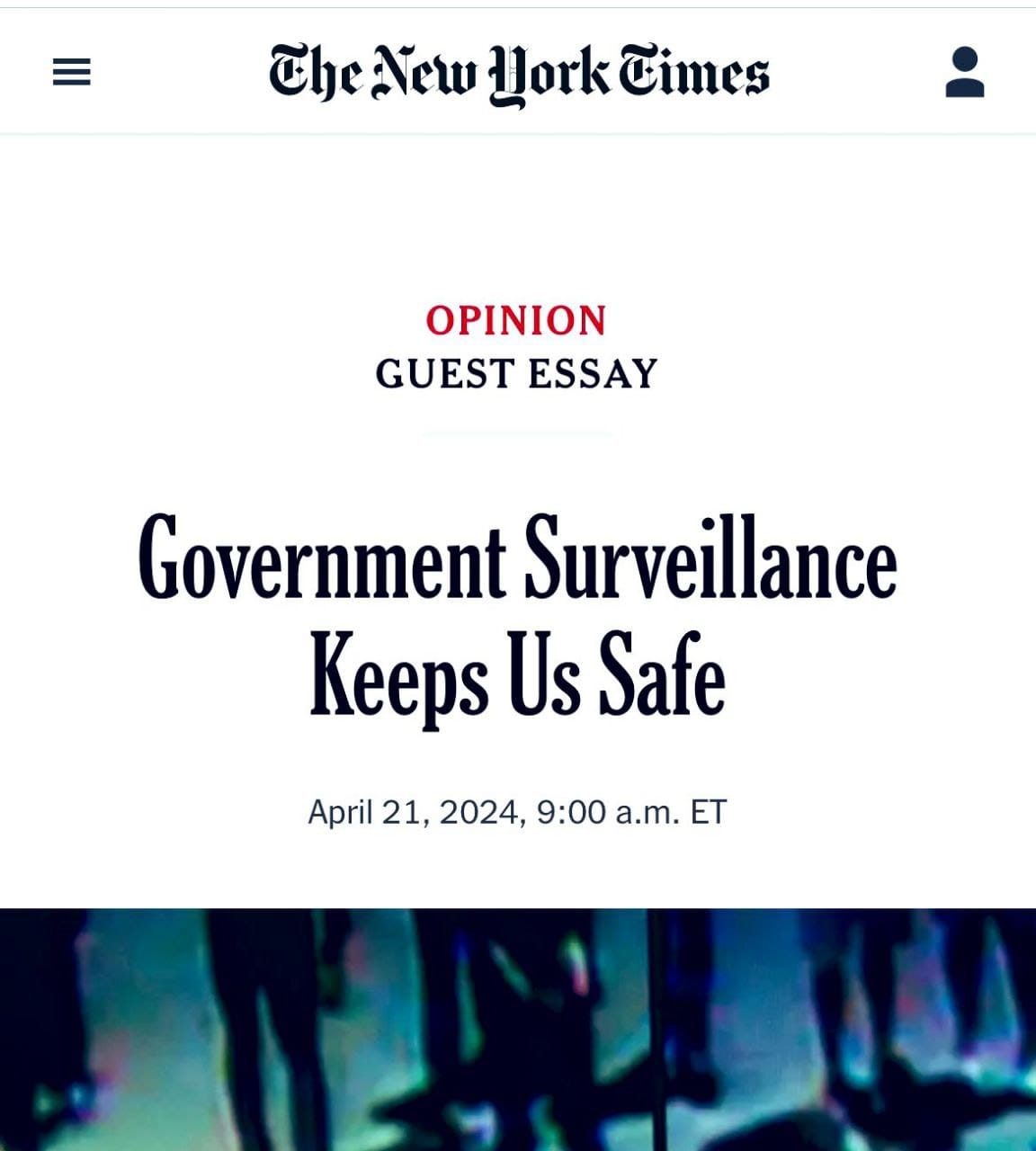Surveillance as a Service
"The immovable instinct that keeps you from allowing cameras in your bathroom is meeting the unstoppable desire for ever more convenience."

- A romance writer gets locked out of her Google account because her stories were flagged as "inappropriate."
- An enterprise OS developer takes constant screenshots of your computer to remember and understand everything you do.
- A commerce giant hires Indian contractors to watch grocery shoppers on camera and charge them for items in order to eliminate the checkout process.
Society's increasing comfort with being suspected and spied on is finally beginning to clash with humanity's long-standing appreciation for personal privacy. The immovable instinct that keeps you from allowing cameras in your bathroom is meeting the unstoppable desire for ever more convenience.
I'm not mad, I'm just disappointed. Not at these developments per se but at the indifference of the general public in response to them. Politicians pushing through power-grab policy and advertisers harvesting consumer spending details is to be expected. Indeed, we would do well to follow incentives and personalities to their logical conclusions and steel ourselves to assume the harshest possibilities latent in human nature and human enterprise will come to pass. And yet, most people still rely heavily on Google services, Apple still has a happily locked-in customer base, and Amazon continues to sell thousands of in-home wiretaps.
Convenience appears to be winning, and it's not even close.
I don't think that convenience is inherently bad, nor that surveillance tactics are likely drawn up with nefarious intentions at the outset, but rather that to happily accept surveillance and give away personal privacy opens up a Pandora's Box of possible attack vectors, data breaches, and negative unintended consequences that are not being properly considered, disclosed, or even admitted. This, in my view, is an ethical failure on the part of firms at best, and willful negligence at worst.
Surveillance is still most commonly pushed through under the auspices of "safety," usually by conjuring some diabolical impression that lots of Very Scary Criminals™️ are putting Children At Risk™️ if we don't start treating ordinary citizens as potential perpetrators by default. To fail to do so would be to fail our children. You wouldn't want to fail our children, would you?

The message: be afraid. Be very afraid.
Be so afraid that you will be willing to give up almost literally everything just to feel safer.
This has been the long-standing trick of tyrannical government officials and despots the world over and throughout history to cajole the innocent to willingly surrender their own freedoms without a single shot needing to be fired. Politicians and senior executives who lean on the rhetoric of fear in order to convince the unconvinced that invasive privileges are justified is the telltale sign that what's really being pursued isn't your own safety but rather their own access.
And now, it seems, software execs are following suit, perhaps because the technology they're building and the information they're gathering is increasingly valuable, not just in terms of dollars but in terms of control and influence.
"People who are trying to get you to reason from fear are always motivated to do so by power. Full stop. If anyone's scaring you into doing something, you don't even have to make a judgment about what they're saying. Just excuse yourself, physically or intellectually, from that situation. It is not respectful to reason with people from fear, or to try to use fear to get them to make decisions. It's a sales tactic." —Natalie Smolenski
All that said, I don't believe it is wise for companies (or you, or me) to dismiss data collection and automation completely, as we would risk tossing out the baby of understanding with the bathwater of, essentially, spying. I do, however, think it is increasingly important for all of us to be able to understand and notice the difference between listening and eavesdropping.
Much of the surveillance that occurs in the world of advertising, marketing, and product development is done with the aim of personalization. Personalization, in this sense, should be all about treating people as individuals and not as a general persona or collective statistic. It is about listening when someone tells you something and remembering it later. Most importantly, it is then acting on what you remember in a way that's helpful or thoughtful to them and not you.
This concept goes by another word, by the way: courtesy. Hospitality. The brands and companies that understand this are guided not by an understanding of technology but from an appreciation for humanity. They think of individual humans, not individual transactions, cart values, and purchase volumes. The latter are outcomes, not targets. Knowing the difference may turn out to be what separates a service from a harvester.
To concede personal privacy to large corporations and to invite surveillance technology into our homes willingly—happily—is a tragedy in the making. A good guiding principle in life to avoid ruin is to reduce the number of opportunities for misfortune, bad luck, and human error to occur, particularly when the consequences of such misfortunes would be life-altering and irreversible. To reduce your potential attack surface, not create more of it.
Many people I know feel that a little convenience is worth the price of privacy. I used to think that it wass because they simply haven't paid the price yet, or aren't aware of the cost. But I'm beginning to wonder if surveillance is starting to be perceived as a desirable service in itself, especially given how many new things there are being shown to us to be afraid of.
In which case, my issue lies not with the ones looking but the ones being seen.


